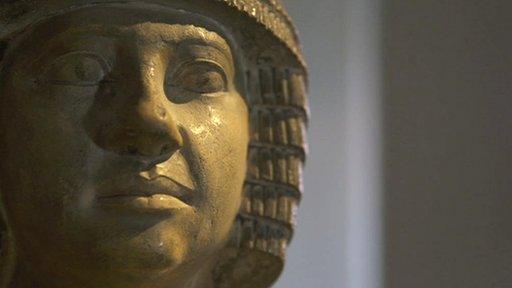Northampton museum refurbishment funded by statue sale 'money well spent'
- Published
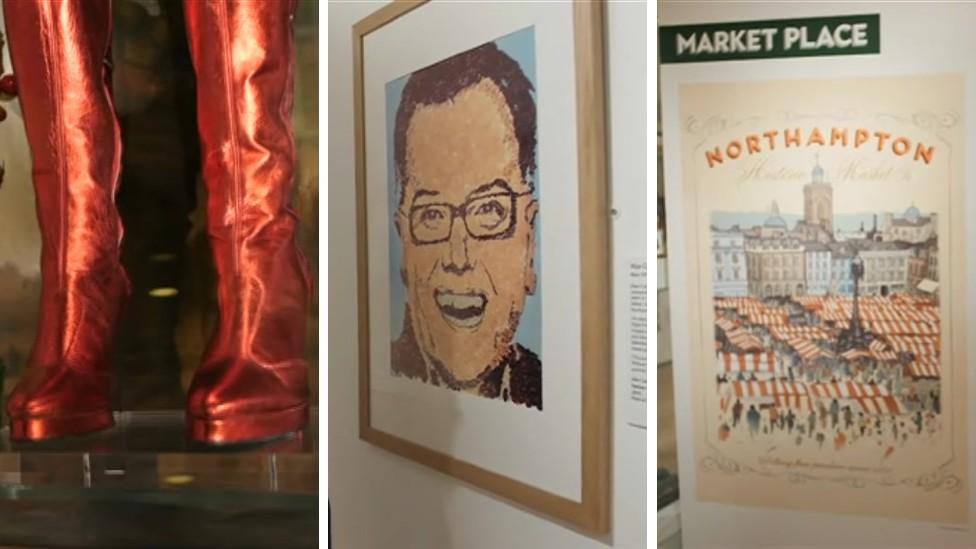
Northampton's museum feature shoes, artworks and the history of the town
Visitors will see a £6.7m museum refurbishment funded by the controversial sale of a 4,000-year-old Egyptian statue as "money well spent", a council leader said.
Northampton Museum and Art Gallery has reopened after more than four years.
The Egyptian Sekhemka statue, was sold for £16m by the now-defunct Northampton Borough Council in 2014.
West Northamptonshire Council leader, Johnathan Nunn, said he was "not sure" if a similar sale would happen again.
"If it did it would be done in a very open, consultative way, with people genuinely being able to understand what the implications were, and to have their say," he said.
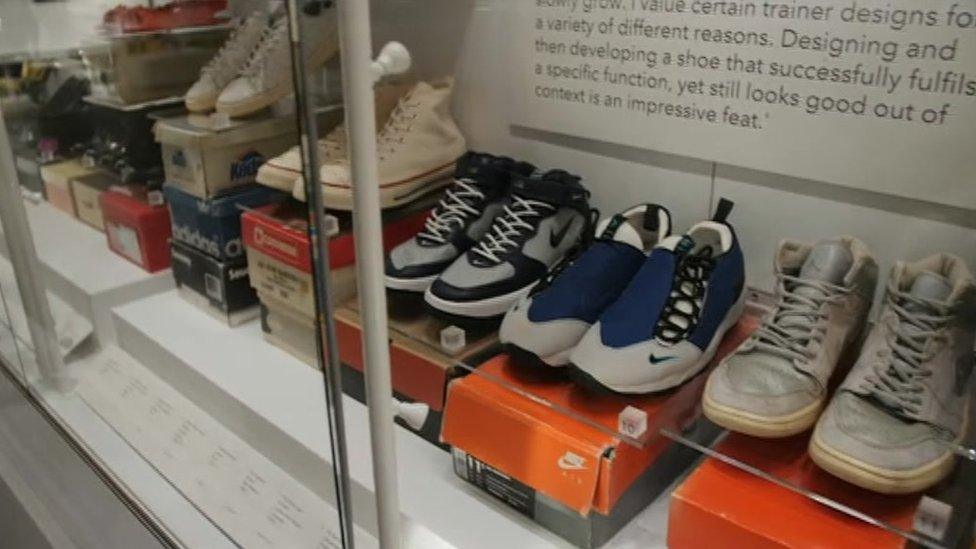
The museum features shoes from several different historical period up to the modern day
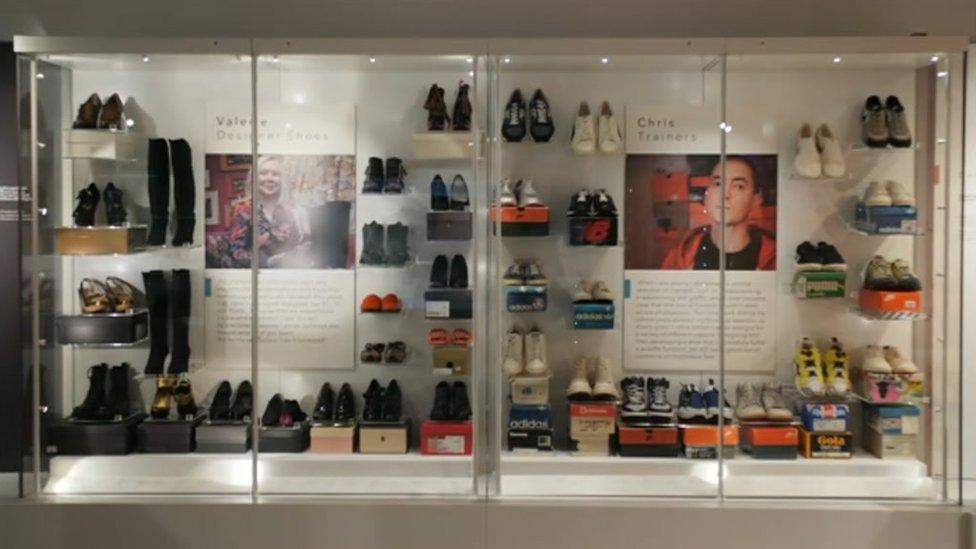
People from Northampton have contributed shoes to the exhibition
The project was delayed for two years after asbestos was discovered in the building.
West Northamptonshire Council, which replaced Northampton Borough Council earlier this year, said the pandemic also delayed the museum's opening.
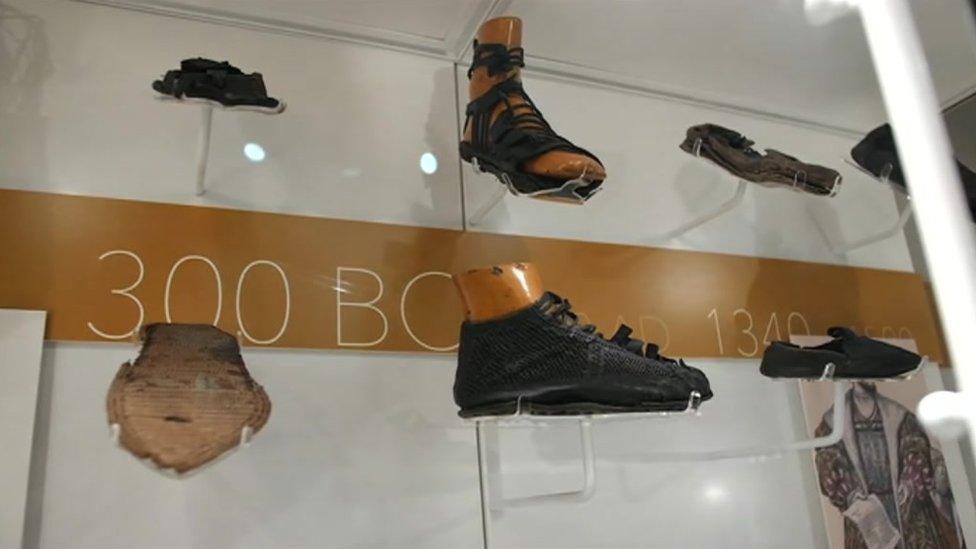
The musuem has the largest collection of shoes in the world
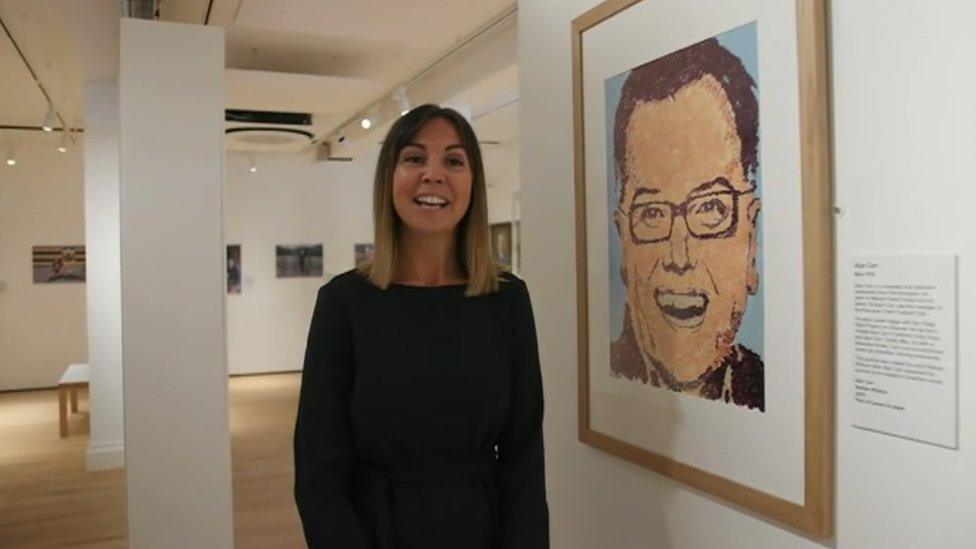
Louise Hannam-Jones from the museum said it was a celebration of the town and its people such as Alan Carr, whose father Graham managed Northampton Town
The museum has an expanded shop, a new sale gallery and a new shoe gallery showcasing its shoe collection and the town's shoemaking heritage.
Mr Nunn said: "I'm pretty certain when people come here they will think that the money has been well spent."
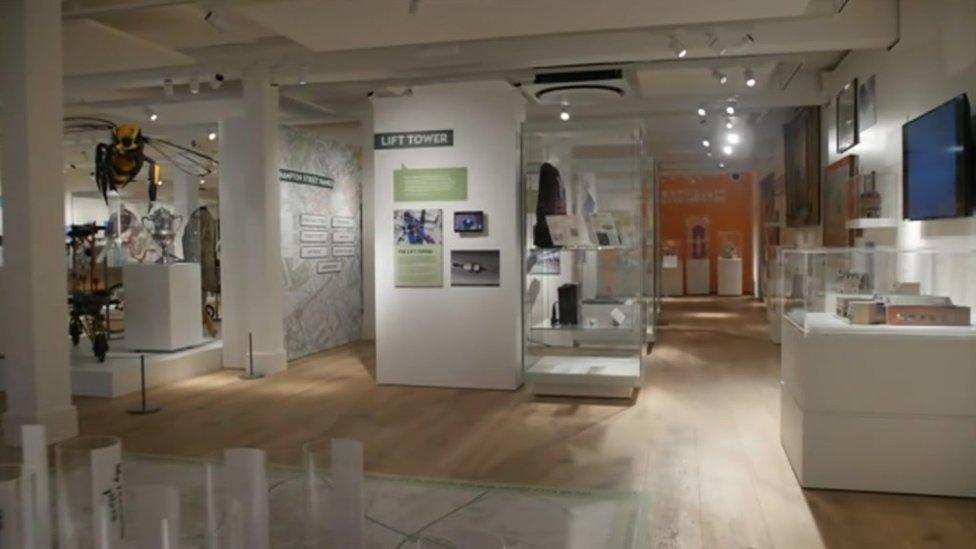
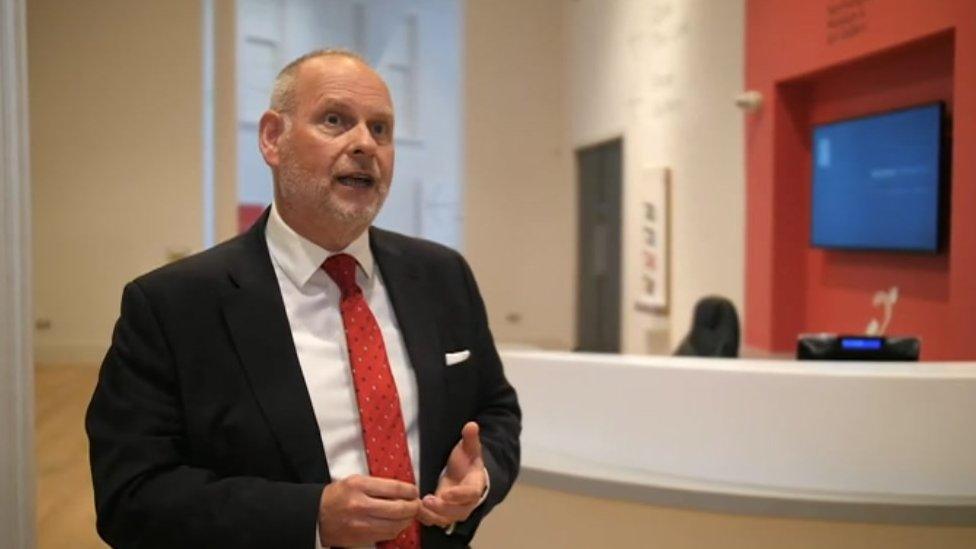
Jonathan Nunn, leader of West Northamptonshire Council, which runs the museum, said he was confident visitors would enjoy the refurbishment
The museum has the world largest collection of shoes with 15,000 pairs, the earliest dating from 300BC.
Rebecca Shawcross, shoe curator at the museum, said "there were certain iconic shoes we couldn't not have on display" including Queen Victoria's wedding shoes and Elton John's tommy boots from the film Tommy.
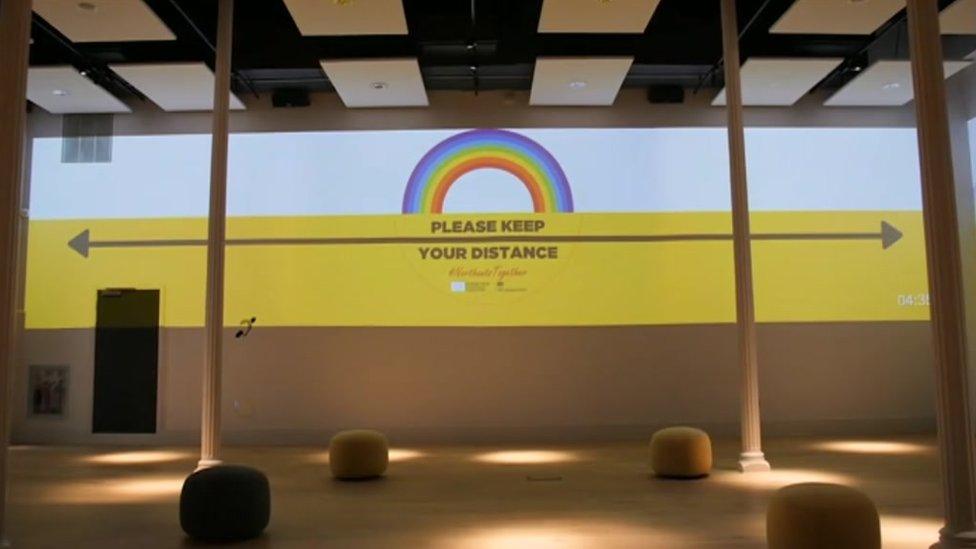
Like many museums, Northampton's will incorporate items and displays from the pandemic
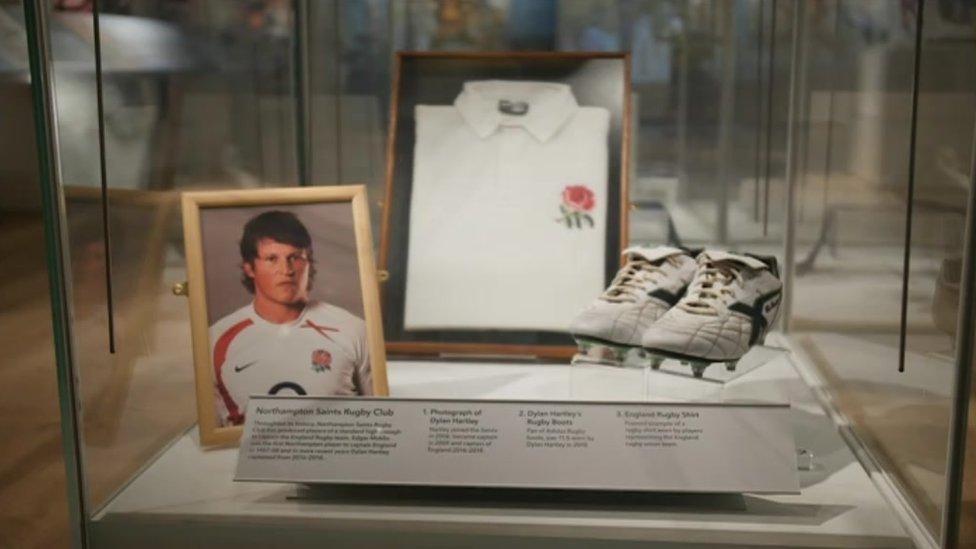
Memorabilia from famous Northampton people, such as former England captain Dylan Hartley, will feature in exhibits
Alongside the shoes there are also exhibitions on the history of Northampton.
Louise Hannam-Jones, history curator, said: "There's an eclectic mix of images, stories, objects, paintings, and it's really a celebration of everything Northampton from the past and the present."
She added "one of the really big parts of the exhibition is the people from Northampton" which includes comedian Alan Carr and former Northampton MP Spencer Perceval, the only British prime minister to have been assassinated, when he was killed in 1812.
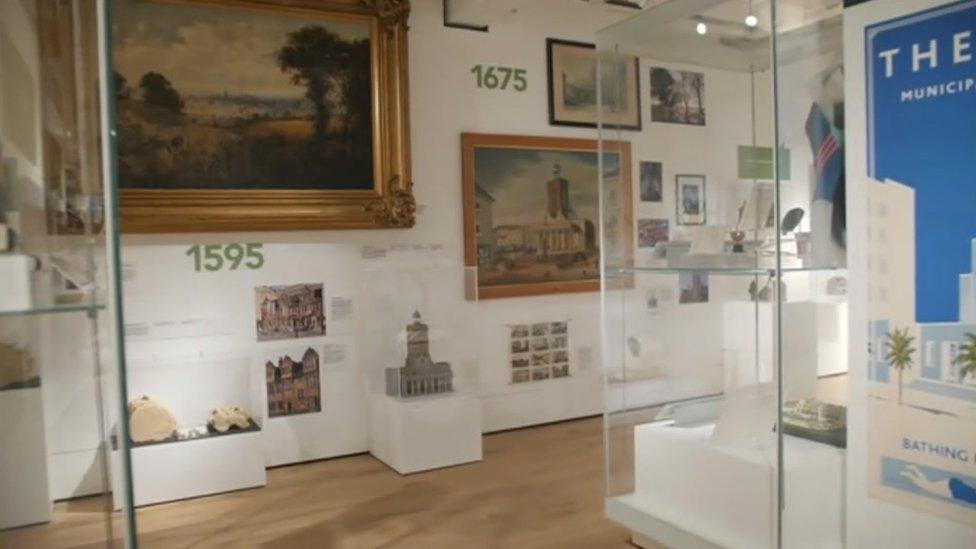
The museum will also show the history of Northampton
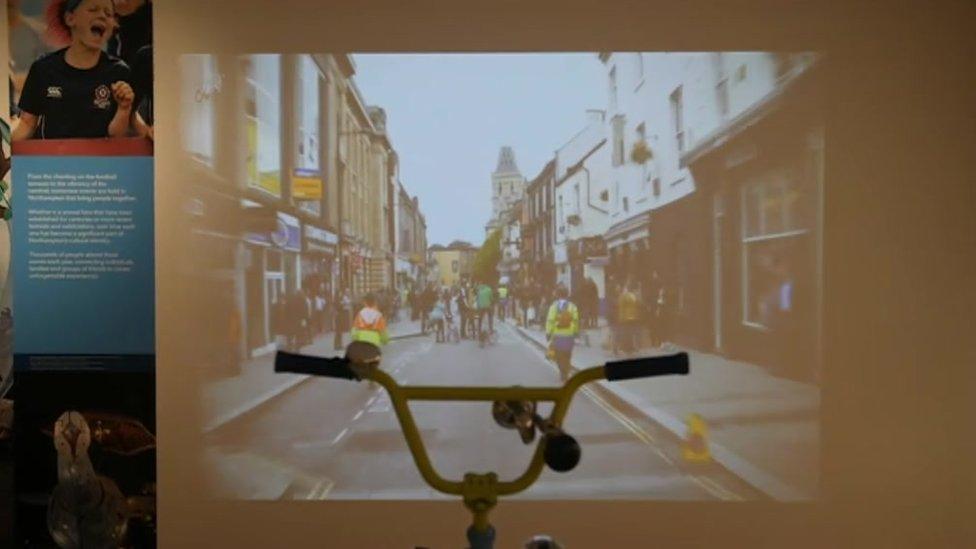
Video art and installations will also now feature in the expended space
The sale of the Sekhemka statue attracted criticism, and even a change in the code of ethics issued to museums. The council made about £8m from the sale.
The museum had its accreditation withdrawn, leaving it ineligible for some grants, after the sale, but the council said it now had provisional accreditation from the Arts Council, external after reapplying.
It would be able to apply full accreditation now the museum had opened and will find out in the new year if the application has been successful, the council said.
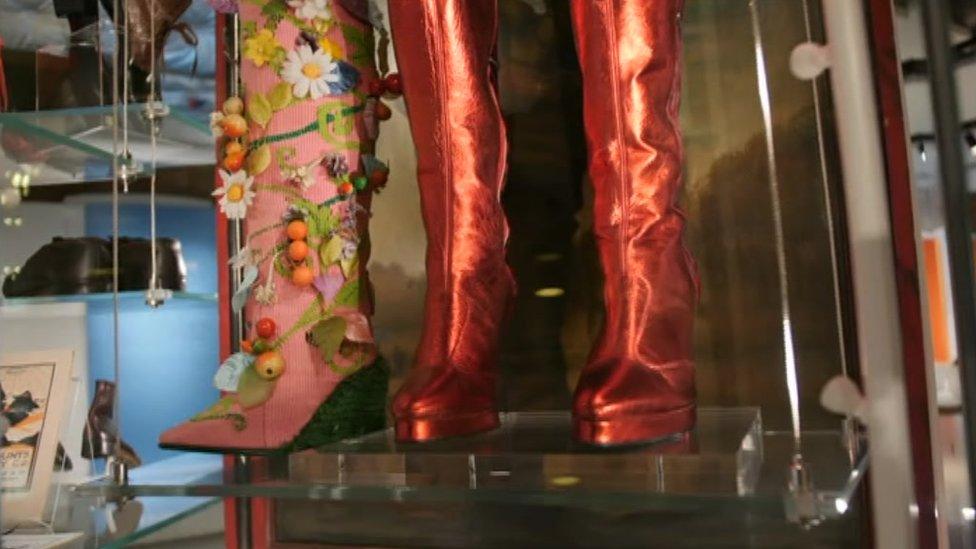
Boots from the film Kinky Boots set in Northampton are just some of the famous footwear on display
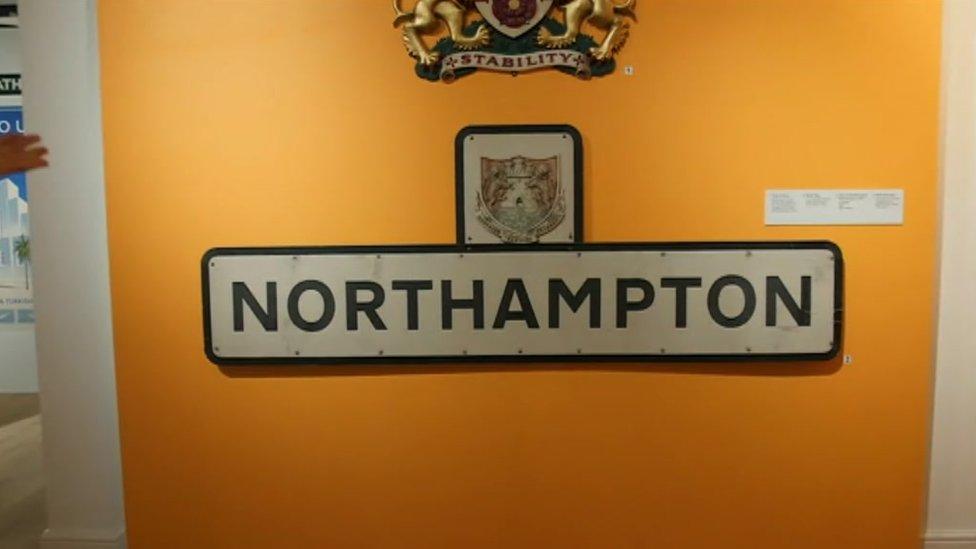
The museum hopes to have full museum association accreditation by next year

Find BBC News: East of England on Facebook, external, Instagram, external and Twitter, external. If you have a story suggestion email eastofenglandnews@bbc.co.uk, external
Related topics
- Published13 May 2021
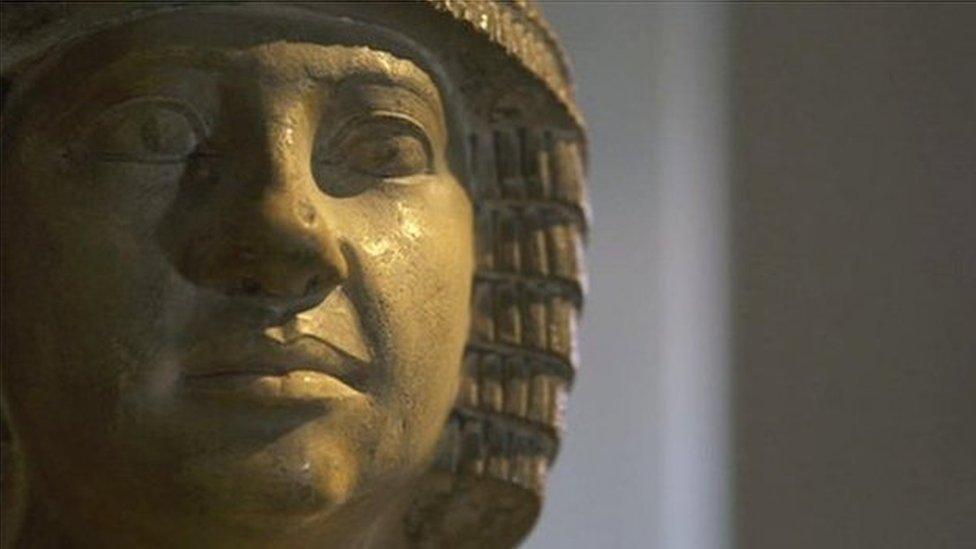
- Published17 July 2019

- Published4 January 2019
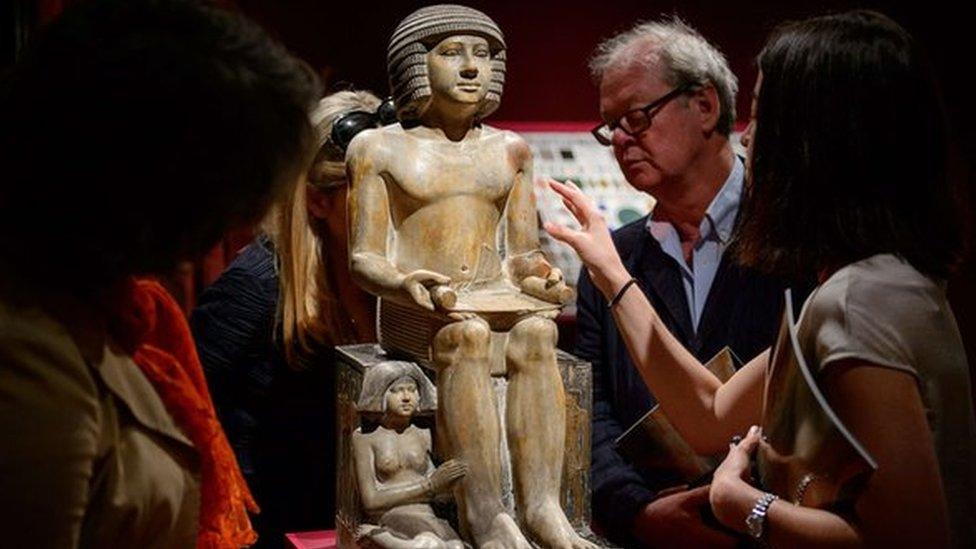
- Published13 September 2018
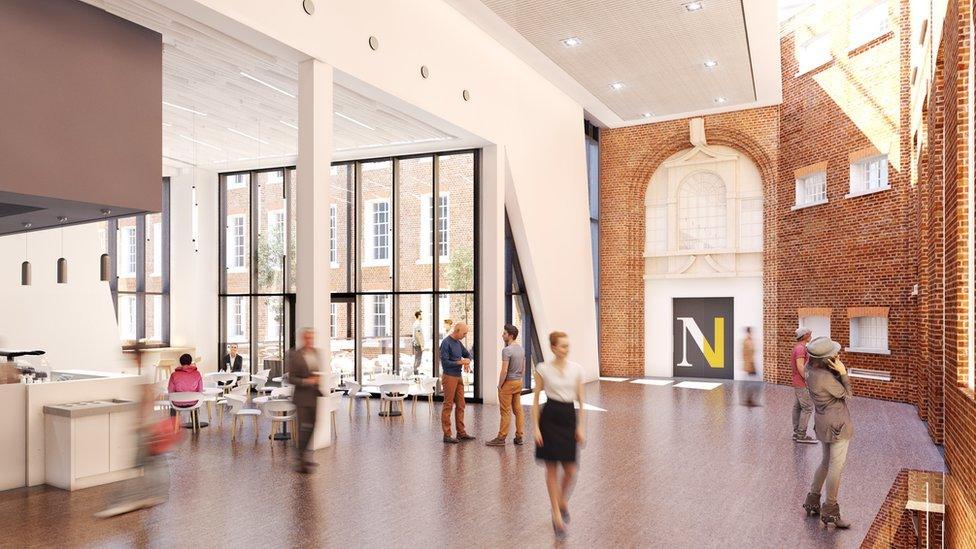
- Published5 September 2017
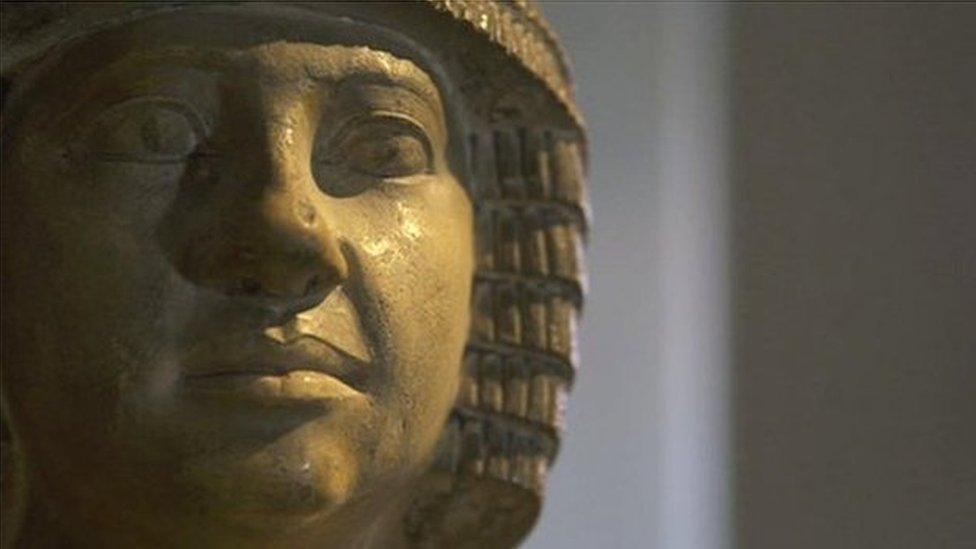
- Published15 October 2016

- Published1 October 2016

- Published28 January 2016
